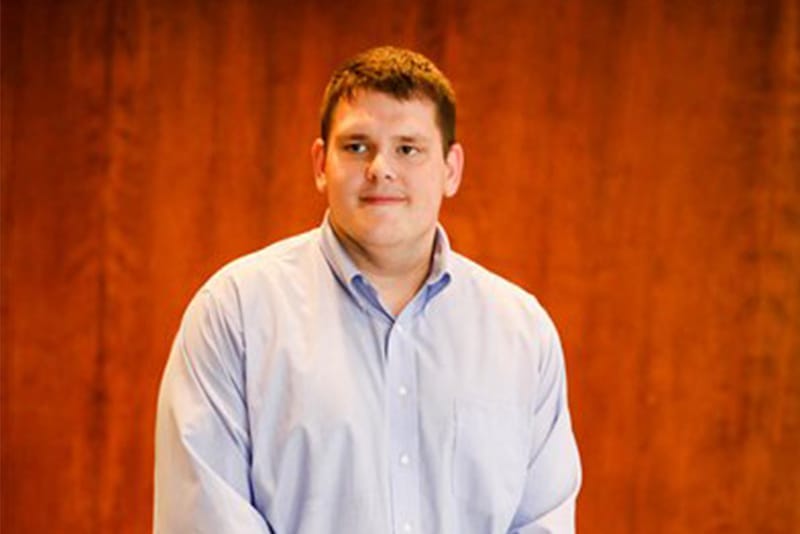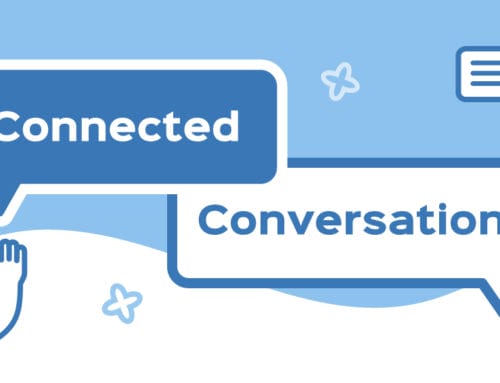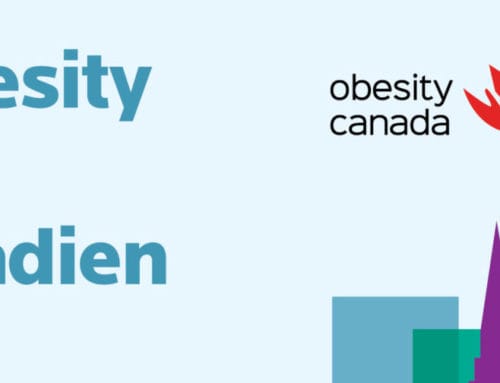In mid-December 2017, I was asked to share my experience to a room full of obesity experts as we worked together to develop much needed new Clinical Practice Guidelines for the treatment and management of obesity in Canada. It is my hope that we can create a set of guidelines that, while being clinically relevant and evidence-based, will empower the public and patients to drive the treatment themselves, making them aware of their options and enabling them to ask the right questions. From a population that has, in general, felt forgotten, belittled or ignored by the health care system, this is a breath of fresh air and a sign of hope that things will be changing for the better.
I am a three-year post-op gastric bypass patient who is passionate about eliminating weight bias and advocating for access to care while building a vibrant community to empower people living with obesity. I want to make sure that my children grow up in a world where body diversity is accepted, and clinical obesity is treated with the dignity and vigour of any other chronic disease.
My personal journey with obesity started in childhood. I was the “fat kid” in school; I knew I was “defective” by grade two, because that is when the bullying began. Luckily for me, I was so active and competitive in sports that I grew to embrace my size and excelled where my weight was an advantage.
At my largest, I was over 350 lbs, a hypertensive with sever sleep apnea at the ripe old age of 30. I was so far gone that I was waking up every morning thinking that “today is the day that the weight was going to kill me.” I literally felt as if the life was getting sucked out of my body.
I was at a real low in my life – I was an embarrassment to myself. Work suffered, home life suffered, and I suffered. Three years ago, I had a gastric bypass and it changed my life. I’m no longer hypertensive, and I no longer need to use a CPAP for sleep apnea. I’m a much better husband, father and employee.
When considering the patient perspective, I wrote down a few words that popped into my head when I thought about the clinical management of obesity.
The first term that came to mind is “non-existent.”
In many cases we are ignored or overlooked because, I can imagine, it is hard to treat something that you don’t quite understand for a disease you have not received much formal training on. This is where these new guidelines come in — we will be developing the resource providing guidance on how to move forward with treatment.
The next word that came to mind was “ashamed.”
I want to be very clear here – each patient living with obesity walks into a physician’s office with a lifetime of guilt and hateful self-talk. We have a voice inside our heads reminding us that we are not worthy, and we do not deserve to be helped. (He is much louder when he is hungry.)
Along the same line is “defensive.”
We have been shamed and blamed, bullied and discriminated against. By the time we seek help, there is a very strong “us-vs.-them” mentality, and if you are skinny, then you are part of them, like it or not. We have been conditioned to expect that you will hurt us.
We have tried exercise and diet, and then another diet, then starvation, then some sketchy pills from overseas found on the dark web, then running, then yoga for weight loss and commercial weight loss programs, then more diets and fasting, with swimming and an eight-week fit body boot camp, low sugar, no sugar, low fat no fat, Paleo, Atkins…and that was in just one year.
We have done it all and it hasn’t worked – so we will be “skeptical.”
With these concepts in mind, here are my recommendations for health care practitioners:
#1: It is not about education
I have been reflecting on this myself as I struggle with weight regain, and I have talked to many of my peers. In short, we know what we shouldn’t eat and we know we should be moving. We could probably use help with what we should be eating or the actual physical task of cooking, but we know that we shouldn’t be eating fast food and junk food no matter how normalized it is. I am an extreme example of this – I am an exercise physiologist and I have taught nutrition, yet here I am with 50 lbs regain in a little over a year. It has made me realize that there is something else going on. A voice or a drive that I have yet to figure out how to shut off. If it can happen to me, imagine the ones who don’t have a PhD – education alone will not cure us.
#2: You need to start with empathy
While some of you may not have ever been fat, you have all been human, so we can relate to each other there. That is how we should be looked at and treated: simply, human.
#3: Acknowledge the complexity
You need to understand that every case of obesity will differ. We will all have our own drive and triggers, genetics, physiology and environment to deal with. The treatment will not be one size fits all. It is more like a one size fits one.
#4: Manage expectations
We are already filled with delusions of grandeur – you need to keep us grounded, prepare us for the reality that we may not ever reach a “normal BMI” and that relapse may happen. Be honest with us, but give us hope that, with constant management, we can improve our health.
#6: Give us tools for our toolbox
Multimodal treatment will be the only effective approach. We cannot look at it as if surgery will solve everything, or pharmaceuticals will be a cure on their own. We need to attack this problem from multiple angles and pair treatment options for each individual. We need more tools.
Dr. Ian Patton
Patient Engagement Manager






